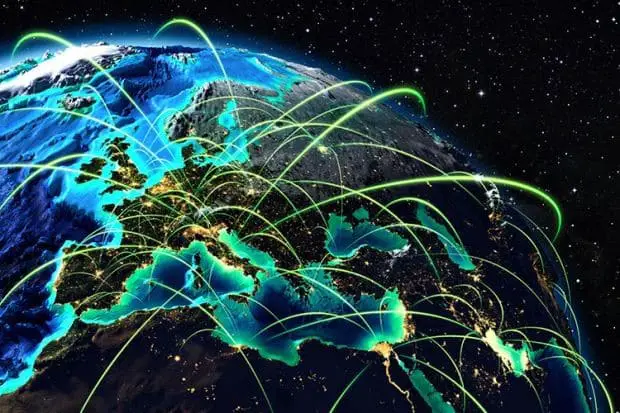In the digital age, global interconnectivity has redefined how societies operate, businesses function, and individuals interact. The concept of the “World House,” a term coined to encapsulate our increasingly interconnected global village, highlights the profound impact of global networks on economic dynamics, cultural exchanges, and political landscapes.
The Economic Impact of Global Interconnectivity
Global interconnectivity has revolutionized the economic structures of the world by fostering an environment where businesses can operate across borders with unprecedented ease. International trade has surged, driven by advancements in logistics and communication technologies. Multinational corporations are now able to manage supply chains that span continents, optimize operations, and access new markets more rapidly than ever before.
Furthermore, the digital economy has flourished under the canopy of global connectivity. E-commerce platforms like Amazon and Alibaba have transformed retail by connecting consumers with products from around the world, while fintech innovations such as blockchain and cryptocurrencies are reshaping financial markets and transactions on a global scale.
Cultural Exchanges in a Connected World
Cultural exchange has been greatly enhanced by the ease of global communication. Streaming platforms such as Netflix and Spotify allow users to enjoy cultural products from different parts of the world, contributing to a more diverse and integrated global cultural scene. Social media platforms like Facebook, Twitter, and Instagram facilitate the sharing of cultural practices and ideas, making it possible for customs and traditions to be appreciated beyond their geographical origins.
This interconnectedness also challenges traditional cultural boundaries, fostering a more inclusive global culture where diversity is celebrated. Events like the Olympics and the World Cup, broadcasted globally, are more than just sporting events; they are celebrations of global unity and cultural exchange.
Political Changes Driven by Global Networks
The political domain has also been transforme by global interconnectivity. Information now flows more freely, enabling transparency and accountability in governments worldwide. Activists and journalists utilize digital platforms to expose injustice and mobilize public opinion across borders, leading to more informed and engaged global citizenry.
However, this interconnectivity also presents challenges, such as the spread of misinformation and the complex web of cyber warfare. Governments and international bodies must navigate these challenges carefully to harness the benefits of a connected world while mitigating its risks.
The Environmental Considerations of a Shrinking World
Environmental sustainability has become a pressing concern in the context of global interconnectivity. The global nature of production and consumption patterns can lead to significant environmental impacts, necessitating a collaborative approach to environmental management and sustainable practices.
The international community has seen the rise of transnational environmental agreements and global sustainability initiatives, such as the Paris Agreement, which aim to address these challenges collectively. These efforts underscore the importance of global cooperation in fostering a sustainable future for the World House.
The Future of Global Interconnectivity
As we look towards the future, the trajectory of global interconnectivity will likely be shape by advancements in technology, changes in geopolitical dynamics, and evolving social norms. The ongoing development of technologies such as 5G, artificial intelligence, and the Internet of Things (IoT) promises to deepen the connections within the World House, potentially leading to more profound economic, cultural, and political transformations.
In conclusion, the World House illustrates how global interconnectivity continues to reshape our lives in multifaceted ways. By understanding and adapting to these changes, societies can harness the potential of a connected world to foster economic growth, cultural richness, political stability, and environmental sustainability.


